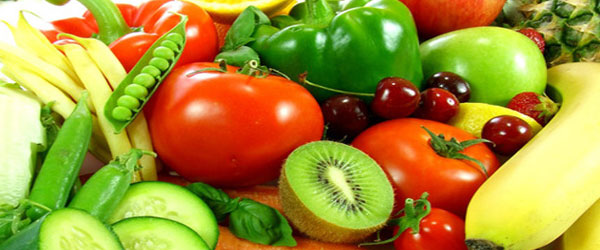Nutritional Tips
Healthy Eating Tips for a Balanced Diet
07 Aug, 2014
To maintain good health and live a better life, you need to take in a healthy and balanced diet.Following a healthy and balanced diet is not as difficult as you may think. All you have to do is to follow a few rule of thumbs and that will make your life easier while making you feel better.
Have a lot of vegetables and fruits
Eating a variety of vegetables and fruits will help immensely. Though people eat fruits and vegetables, they do not eat enough of them. In fact, a large portion of your diet needs to be vegetables and fruits. For example, while juice and a banana can form a suitable breakfast, your lunch should consist of some vegetables, for instance in the form of a salad. And although a pear can be fine as an afternoon snack, your evening meal should consist of other vegetables.
Have more fish
Eat as much fish as possible, including the oily variety. Fish, particularly the oily ones, are an excellent source of protein and offers a variety of minerals & vitamins. There are a lot of options to choose from – fresh, canned, or frozen. However, the point that you need to keep in mind is that smoked and canned fish can be rich in salt. Among fish, the oily variety is preferable as they contain fats called Omega-3 Fatty Acids, which help to keep our hearts healthy. However, do not have more than 4 portions of oily fish per week. Salmon, trout, mackerel, fresh tuna, herring, pilchards, sardines, and eel are the recommended oily fishes.
So far as white or non-oily fishes are concerned, do not have more than one portion per week. This is because these fishes have a high level of mercury. Non-oily fishes include hake, plaice, haddock, shark, swordfish, tinned tuna, cod, skate, and marlin.
Reduce intake of sugar and saturated fat
Try to avoid saturated fat and sugar as much as possible. This because too much of sugar or saturated fat can increase cholesterol in your blood, thereby increasing the probability of heart disease.
Reduce intake of Salt
Having too much salt can have disastrous consequences as salt tends to increase your blood pressure. If you already have high blood pressure then you are already exposed to the threat of heart disease or stroke. Taking salt will only increase the risk. Whether or not you have high blood pressure, you need to control the intake of salt to keep your blood pressure normal and reduce the risk of heart ailments.
Wholegrain
Wholegrain varieties of starchy foods is actually ok. This is because wholegrain foods are richer in fiber and other nutrients than the other refined and white starchy foods. These foods are excellent source of energy as well as calcium, Vitamin B and iron.
While all these are discussions regarding the foods that you need to have to remain healthy, here are some other tips that can be helpful.
Start slowly
Don’t get too worried about your food habits. Even if you need to bring in a drastic change in your habits, do it slowly. Take time and gradually change your food habit over a certain period of time, rather than changing it abruptly. Whatever small step you take to make a change, it will make a big difference to your health in the long run.
Be moderate
In your effort to be healthy, you don’t have to get rid of all the unhealthy foods completely. You can eat what you want … just be moderate and maintain a balance.
Changing the way you eat
Last but not the least, change the way you eat. Don’t eat like a glutton and be sure to eat slowly – taking time to chew your food before swallowing. Enjoy your meals rather than running through them. Eat smaller portions throughout the day and stop eating past eight pm. Most importantly, pay attention to what your body says.
Share :




